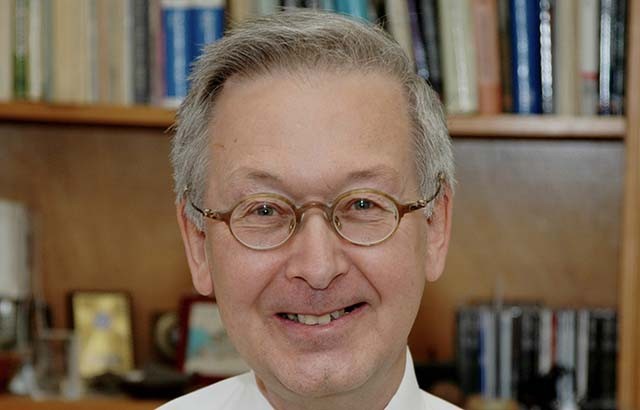Professor Sir Humphreys began by talking about his childhood interest in insects, which led him to study biology at the University of Cambridge. After graduating, he switched to materials science, and he soon became interested in the use of electron microscopes to study materials. He spent several years at the University of Oxford, where he headed the one-million-volt electron microscopy facility.
In 1990, Humphreys moved to the University of Liverpool, where he became Head of Department of Materials Engineering. There, he worked on shape memory alloys, which are materials that can be deformed and then return to their original shape. He also began to study the ‘wonder material’ graphene, the world's thinnest material. At Queen Mary he continues to research graphene and graphene electronic devices.
When asked if graphene has the potential to change the world, he explained: “I think so and I also think it’s very necessary. The world electricity supply globally is increasing approximately linearly at 2-3% per year. Since 2010, the world demand for electricity has been doubling every 3 years, which is exponential. So unless we do something the total electricity production of the world will be totally consumed by electronic materials, particularly by Artificial Intelligence, which uses huge databases. You’ve really got to have low energy electronics. Silicon’s wonderful but we need a low energy replacement. The first device we made from graphene, which is a Hall-effect sensor, uses up to 1,000 times less energy than a silicon sensor.”
He has also made significant contributions to the development of low-cost LED lights. As a result of their widespread adoption, the cost of lighting has dropped from 20% to 5% of our electricity bills.
In his interview on The Life Scientific, Professor Sir Humphreys also discussed the intersection of his scientific life and his religious faith. He said that he believes that science and religion are complementary, and that they can both help us to understand the world around us.
Professor Sir Humphreys is a fascinating and accomplished scientist, and his interview on The Life Scientific was a great opportunity for people to learn more about his work and his views on the world.



